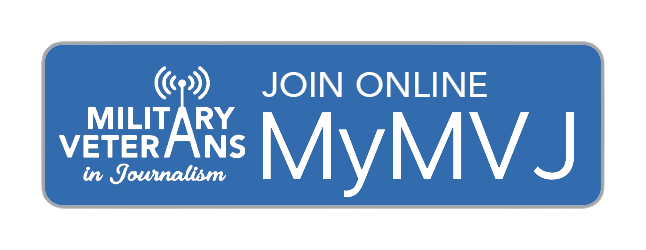
Open Letter from MVJ Executive Director Zack Baddorf
MVJ Community,
First of all, thank you.
Military Veterans in Journalism would be nothing without you — our members, our supporters, our teammates. We were honored that about 350 people showed up to attend our first annual convention. We’ve heard from many of you that you enjoyed hearing directly from Jake Tapper and Brianna Keilar at CNN, Jeff Jarvis at CUNY, Sara Shahriari at INN, and many others in the media world who shared their insight and knowledge with us. The DAV Career Fair and Knight Foundation Happy Hour were also big hits.
This convention was the culmination of about two years of work serving the veteran community. A range of news outlets, non-profit organizations, educational institutions and philanthropic organizations came together in a show of support (and sponsorship!) for our organization and our mission to get more vets in news. It was truly humbling to see the manifestation of our work on the virtual stage throughout our two-day convention.
My co-founder Russell Midori and I founded MVJ in 2019 thinking we’d basically meet up with some fellow vets in a bar and swap business cards. But the need is so much more than that. It’s been truly awe inspiring to see a range of partners step up to help support our community.
While the convention was going on, I was in Dallas taking part in the fifth and final session of the non-partisan George W. Bush Presidential Center’s Veteran Leadership Program. I was honored to have been selected for this program to hear from a variety of high-level professionals, educators, and experts in veteran and military family transition issues.
Throughout the program, I and the other veteran leaders met with President Bush and Mrs. Bush as well as retired U.S. Marine Corps general Jim Mattis and Deborah Birx. Hearing from a range of speakers and from my fellow vets left me inspired to do more for the MVJ community.
We’ve accomplished a lot in these past few years and we have much more on the horizon. I am truly grateful for the Bush Center’s belief in me — which, more than anything, is about their belief in Military Veterans in Journalism.
My biggest takeaway from the leadership program was realizing just how much we can accomplish together. Our convention — the first of many to come — demonstrated that to me in action. Seeing all of our amazing partners share their knowledge and unite behind our cause made me immensely proud to be part of this organization.
Again, thank you. Together, we are growing our community and creating opportunities for our members. Our shared energy and focus will help us accomplish our mission of getting more vets in news.
Sincerely,
Zack Baddorf
Executive Director, Military Veterans in Journalism











